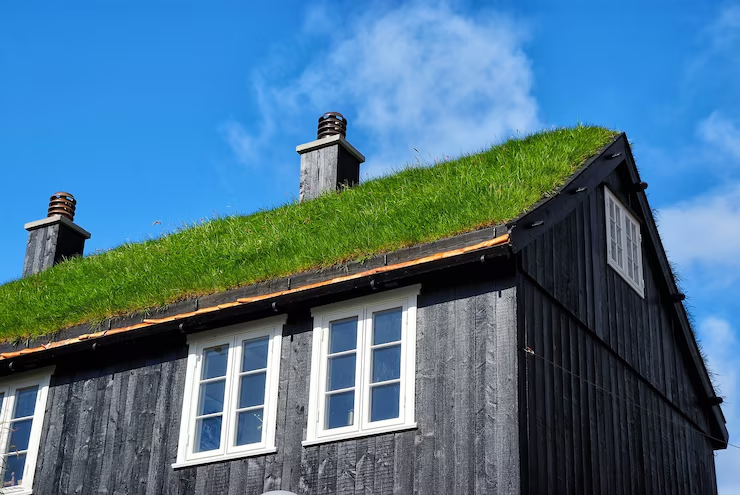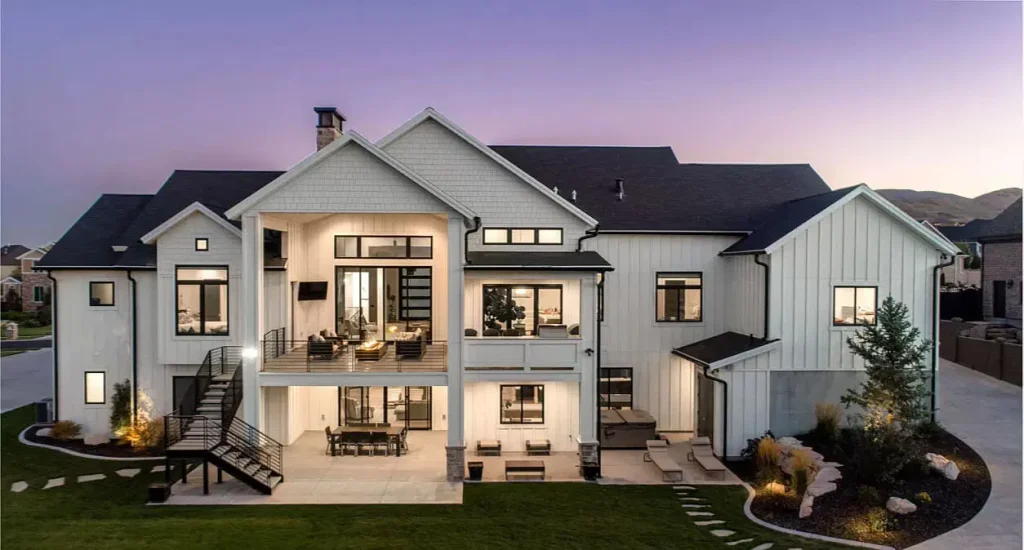Table of Contents
The roof of your home plays an important role in keeping your property safe and structurally sound. But over time, constant exposure to sunlight, rain, and changing temperatures can gradually wear it down. This often leads to deterioration that may go unnoticed until repairs become unavoidable. One effective way to extend the lifespan of your roof is by applying a roof coating. But if you have never heard about it before this blog is the right place for you. In this blog, we’ll explore what roof coating is, the benefits of roof coatings and what options are available when choosing roof coatings.
What Are Roof Coatings?
Roof coatings are liquid materials applied directly to the surface of your existing roof. Once in place, they create a continuous, protective layer that bonds with the roofing material. This added layer helps protect the roof from weather-related damage and wear, significantly extending your roof’s lifespan. You can choose from a variety of roof coatings, each offering different benefits depending on the needs of the building.
What Are The Benefits of Roof Coatings?
Extended Roof Lifespan
Applying a roof coating can significantly extend the life of your current roof. It acts as a protective layer against harsh sunlight, temperature changes, and daily exposure to the elements. This extra protection helps slow down wear and tear, which means your roof can stay in good condition for a longer period.
Energy Efficiency
Some roof coatings are designed to reflect sunlight, helping keep your roof cooler during hot weather. This reflective quality can lower the temperature inside your home, easing the strain on your cooling system and helping reduce energy costs over time.
Leak Prevention
By sealing small cracks, seams, or gaps, roof coatings create a moisture-resistant surface that helps keep water out. This can be especially helpful in preventing leaks before they start, saving you from unexpected repair bills later on.
UV Protection
Constant exposure to ultraviolet rays can weaken roofing materials. A coating adds a layer of protection that blocks UV rays, helping your roof stay intact and maintain its structure for longer.
Seamless Application
Because roof coatings are applied as a liquid, they spread evenly across the entire surface without the need for fasteners or seams. This seamless finish helps reduce areas where water might otherwise find its way in.
Environmentally Friendly
Many roof coatings are formulated with fewer harmful chemicals, making them a safer choice for the environment. Choosing one with low VOCs can help reduce your home’s environmental impact.
Cost-Effective
Compared to replacing an entire roof, applying a roof coating is much more affordable. It can lower ongoing maintenance costs and delay the need for major repairs or replacement.

Types of Roof Coatings
Not all roof coatings are the same. Each type has its own strengths and works best with certain roofing materials or climate conditions. Here is a closer look at some of the most common options:
Acrylic Roof Coatings: Acrylic coatings are popular for their balance of durability and flexibility. They offer solid protection against UV exposure and work well with many types of roofs. Since they are water-based, they are also a more eco-conscious choice.
Silicone Roof Coatings: Silicone coatings are highly effective in harsh sunlight and extreme temperatures. They hold up well over time without cracking or peeling and are especially useful in areas where standing water is an issue, as they resist moisture very well.
Polyurethane Roof Coatings: If you need something tough, polyurethane is a strong option. These coatings handle impact and foot traffic better than others, making them ideal for commercial roofs or high-use areas. They are available in both water- and solvent-based varieties.
Elastomeric Roof Coatings: Designed to expand and contract with changing temperatures, elastomeric coatings are great for places that see a lot of weather variation. They provide strong waterproofing and UV resistance while helping your roof stay flexible and protected.
What Is the Installation Process Like?
Installing a roof coating is a relatively quick and less time consuming process compared to a full roof replacement. Depending on the size and condition of your roof, the job can often be completed in a single day or stretched over a few days in case of larger buildings.
The process begins with a thorough cleaning to remove dirt, debris, and any loose materials. This step is essential to ensure the coating adheres properly. Once the surface is prepped, the coating is evenly applied, typically using rollers or spray equipment. After application, it usually takes about 24 hours for the coating to fully cure.
Protect Your Roof and the People Beneath It
Give your roof the protection it deserves. At Apex Roofing & Restoration, our roof coating services help extend your roof’s lifespan while guarding your home against leaks, heat, and wear. Let our trusted roofing contractors keep your roof strong and your home safe.
Frequently Asked Questions – FAQs
How long do roof coatings last?
Simply put, roof coatings can last between 10 and 20 years.
How much should a roof coating cost?
Roof coating costs $1 to $4 per square foot, depending on the sealant type, roof material and access, prep work required, and number of layers. The average cost to coat and seal a roof is $500 to $2,000
Will roof coating stop leaks?
Roof coating also has unique elastomeric qualities that means it can expand and contract while layered on top of the roof. When applied on top of a flat or pitched roof, roof coating adds a thick, hard-wearing layer that can fill in cracks and prevent future leaks
What type of roof coating is best?
Silicone roof coatings are one of the most expensive types of coating but are recommended by experts for roofs that face extreme weather conditions, high temperatures, and high humidity levels
Is roof coating any good?
One of the most significant advantages is their ability to extend the lifespan of your roof. By providing an additional layer of protection against the elements, roof coatings help prevent damage from UV rays, water, and other environmental factors that contribute to roof deterioration.

